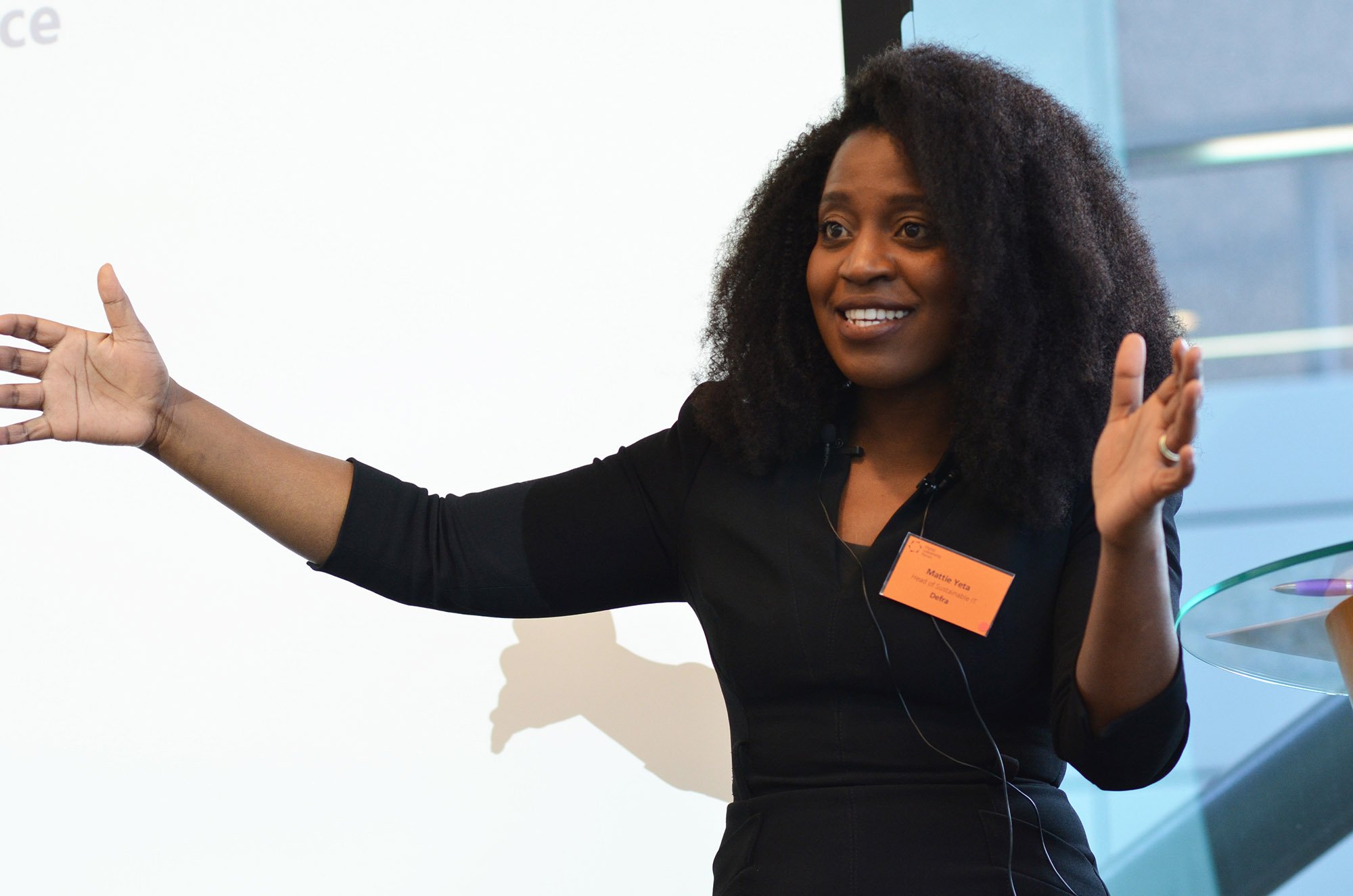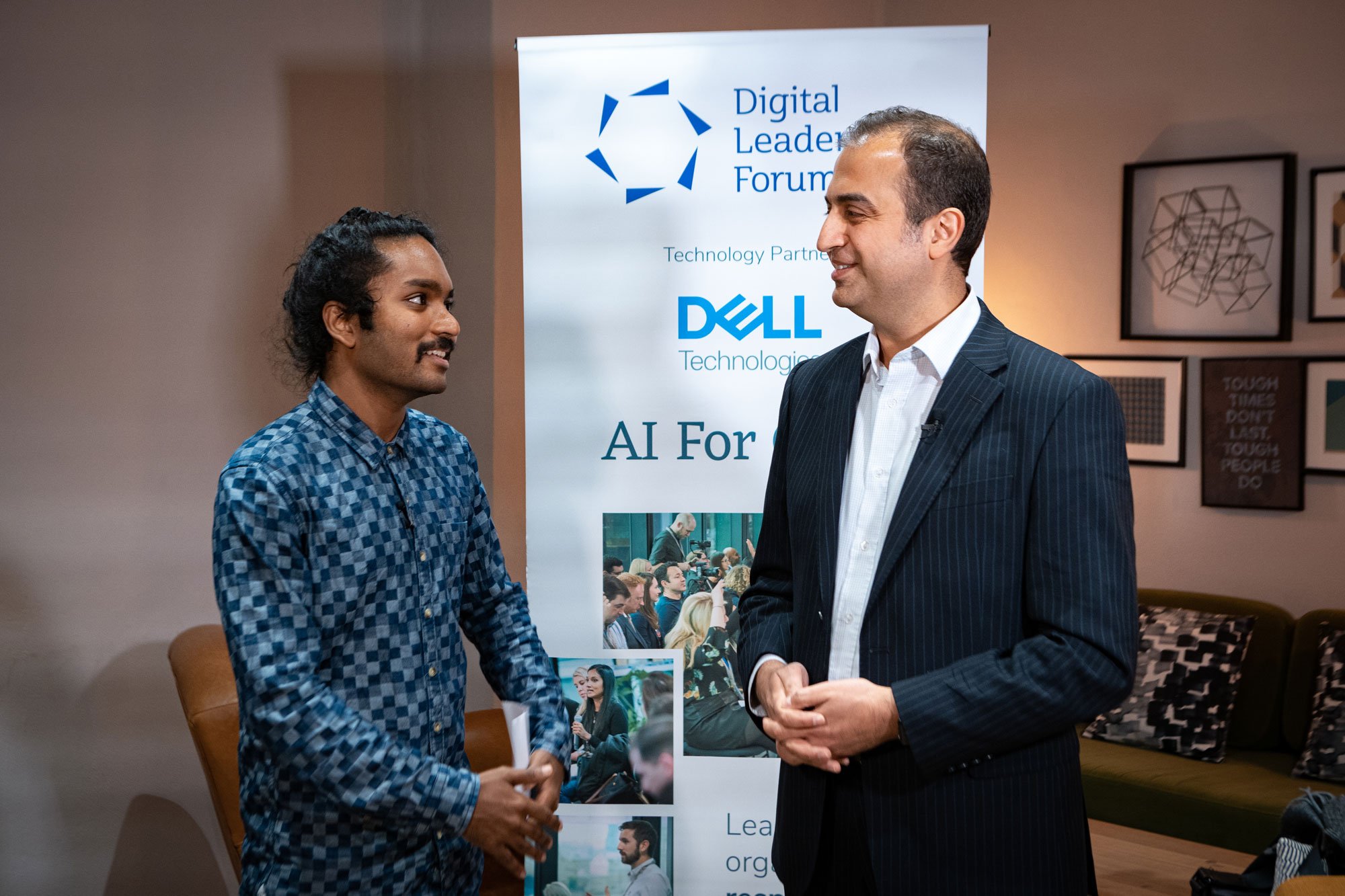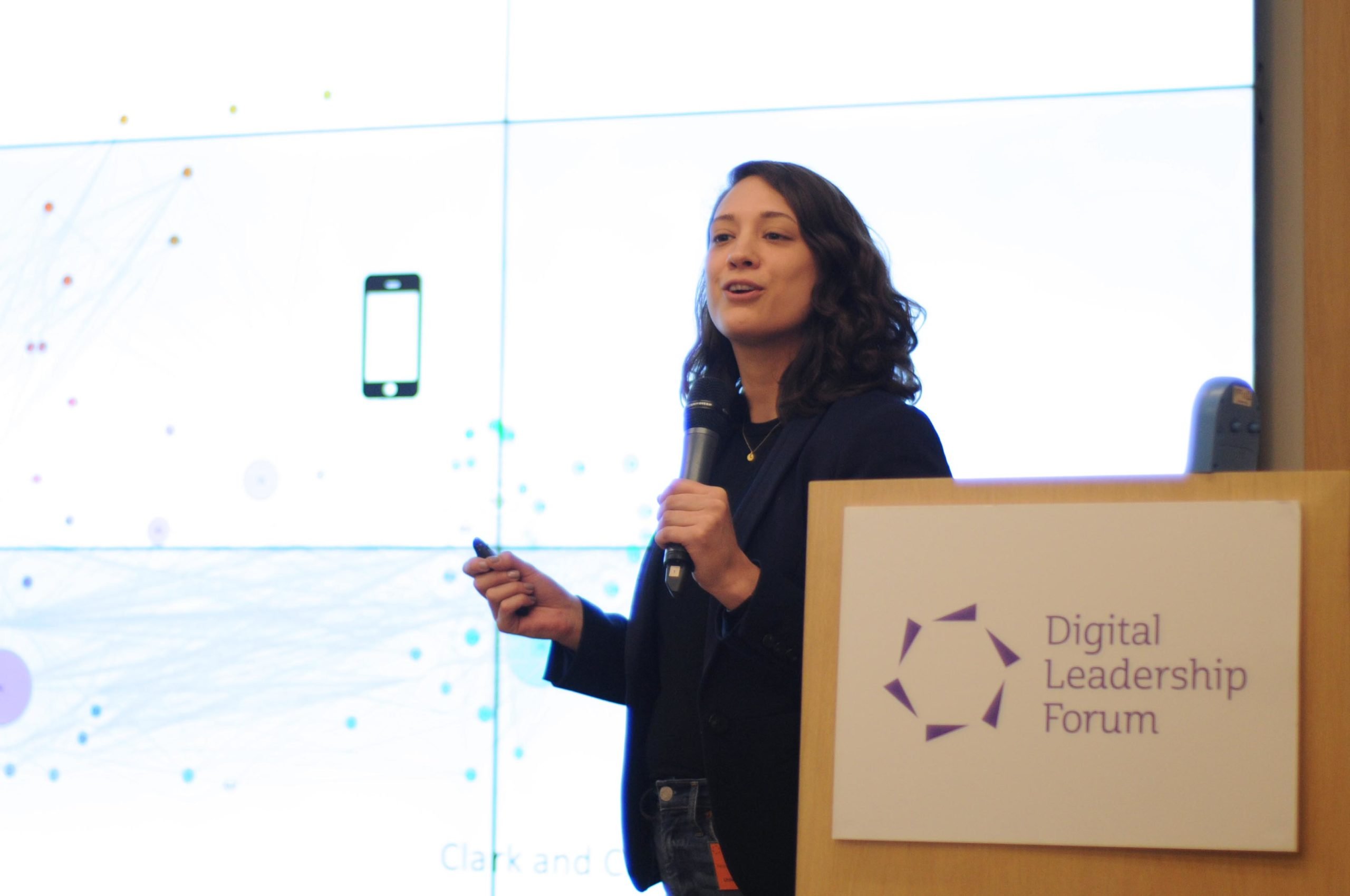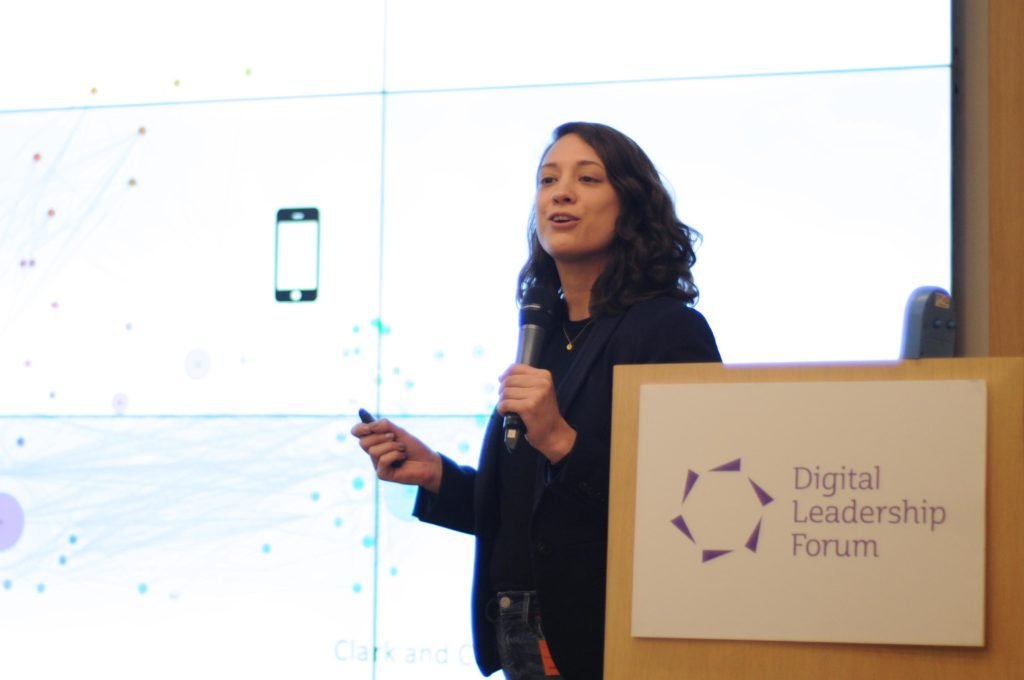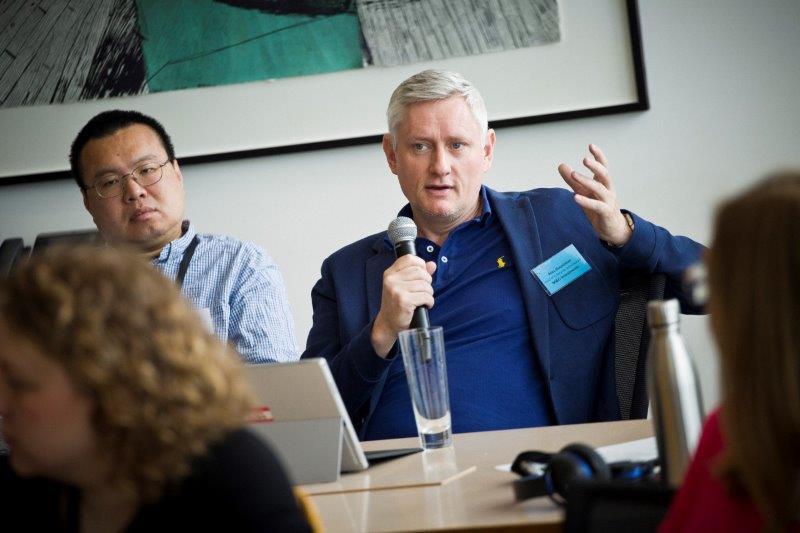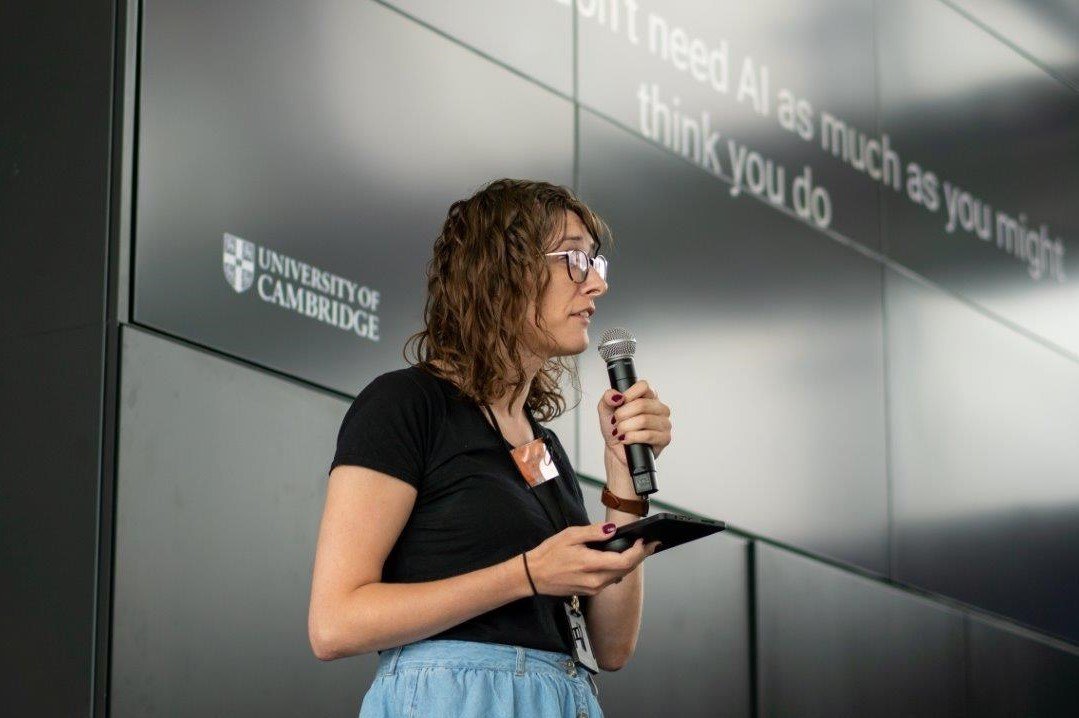Harnessing AI: where to start? Led by Katie King, Keynote speaker on AI
We were looking at where to start with AI, I think the best takeaway from this was not necessarily just thinking, let’s go for AI because it is cool, or it’s the in thing, or it’s the buzz word of the moment but starting within the business. What do you need? What’s the requirement? What’s the objective?
Whether it’s revenue based, or brand based, or cost cutting, or getting data, whatever it may be. But the internal business objective is your starting point. And then where can AI help facilitate that? Not the other way around, not thinking where can we put AI into our business.
Feedback presented by Nathan Brown, Senior Digital Project Executive, AXA PPP Healthcare
How can you leverage chatbots in the B2B sector? Led by Diogo Coutinho, Product Lead, Shell International Ltd
We looked at starting points for chatbots in the B2B sector. We were looking at how we should go away and have a look at the big players and who can provide the service and to play around with the tools and have a look at what they offer.
Then going away and seeing why is it needed? What’s the business case? Would it make the process quicker? Does the user actually want it? Then speak to the audience and see how easy is it for them to currently extract content? And is there a better way of doing it through a chatbot service.
We also discussed the importance of putting a minimal viable product together so you’ve got a scope for what’s required. As well as interviewing the users, conducting research and speaking with the internal help desk to find out really what is needed internally and what information could be needed on the chatbot.
Feedback presented by Toni Fitch, Digital Marketing Manager, Octopus Investments
How can you utilise AI to create a compelling and intelligent CX? Led by Darren Ford, VP Global Customer Services, Artificial Solutions
We were talking about how you can utilise AI to create compelling and intelligent customer experiences. We started off by asking what do we think one of those would look like? And we got very quickly into the topics of personalisation and customisation, being able to understand the question however it’s posed and to answer it. Then we got into the importance of data for delivering that answer. And we had quite a long discussion around the availability of data and how people have tried to create some solutions. One of the things that came out is that very few people have actually tried to have one or two POCs around, but nothing that’s really got to a production level.
So, a key thing that came out of this was the need to have the right data in the right place to be able to answer the questions when posed. I think one of the things that Darren said was, it’s far better to have a very narrow solution with a great depth, rather than a broad solution that does next to nothing.
Feedback presented by Chris Bushnell, CFO, Artificial Solutions
How do you decide the best CX areas to automate with AI?
We started with a use case, we said no matter which area you focus on, you have to start with the use case, then only as a secondary stem, we need to think about the technology, although we debated that as well. The driver needs to be the business case. In terms of what the benefits could be, we were looking at how to service customers’ needs, how to understand the customer and predict customer behaviour.
There was a conversation about how to cut costs and customer lifecycle management. We also looked at some successful use cases such as complaints management. We had a very good use case, in terms of advisory services in general and how they can improve customer service, and also how to include external data like LinkedIn into your customer service, which you usually don’t do when you work manually.
Feedback presented by Gaby Glasener-Cipollone, Managing Director, Cirrus
How can you measure your AI-powered customer experience?
We discussed how AI is just an enabler. Everyone sees it as some bright shiny thing, but actually it’s just a tool. So, I think, it’s important to look at your business and consider the different functions as you normally would. Is AI helping with sales? Is it decreasing cost? Is it improving customer experience? Is it improving employee experience and the effectiveness of HR?
Feedback presented by Graham Combe, Business Development, DataArt
How can you create a culture of AI innovation?
Feedback presented by Jon Downing, Business Development Director, business mix and Jane Ruddock, Manager, PwC
Jon Downing, business mix
We really focused around the importance of creating an AI innovation culture and how it’s about putting the customer first and trying to create a series of quick wins. One of the things we discussed was to look at anything that isn’t working and try to get rid of it quickly and anything which is working to explore and deploy more effectively. We spoke about the importance of raising a very clear and compelling narrative around the work. This is particularly important when discussing AI because there’s a lot of confusion around the language, a lot of uncertainty around what this really means to people and it’s about creating clarity. We also talked about looking externally at the competition, and not just the traditional competitor organisations, but some of the challenger organisations and companies such as Amazon, Facebook, Apple who may be trying to enter into different markets.
Jane Ruddock, PwC
From PwC, one of the things that we identified around creating a culture of innovation is to truly mean that. And that it goes directly to the organisation’s core values, which enables people at all levels to be involved in the AI and innovation changes. So that could be anything from making sure that training is available, making sure there are champions involved with all of the different areas where you’re trying to apply AI and embedding it into people’s roles. It’s also really important to make sure that people feel empowered, and that they have the right training and support to carry out their roles around artificial intelligence and around innovation.
AI for Good
AI for Good – in partnership with Dell Technologies – is a programme of dedicated learning and development events which are designed to enable members of the Digital Leadership Forum to innovate with new AI technologies in a responsible way.
